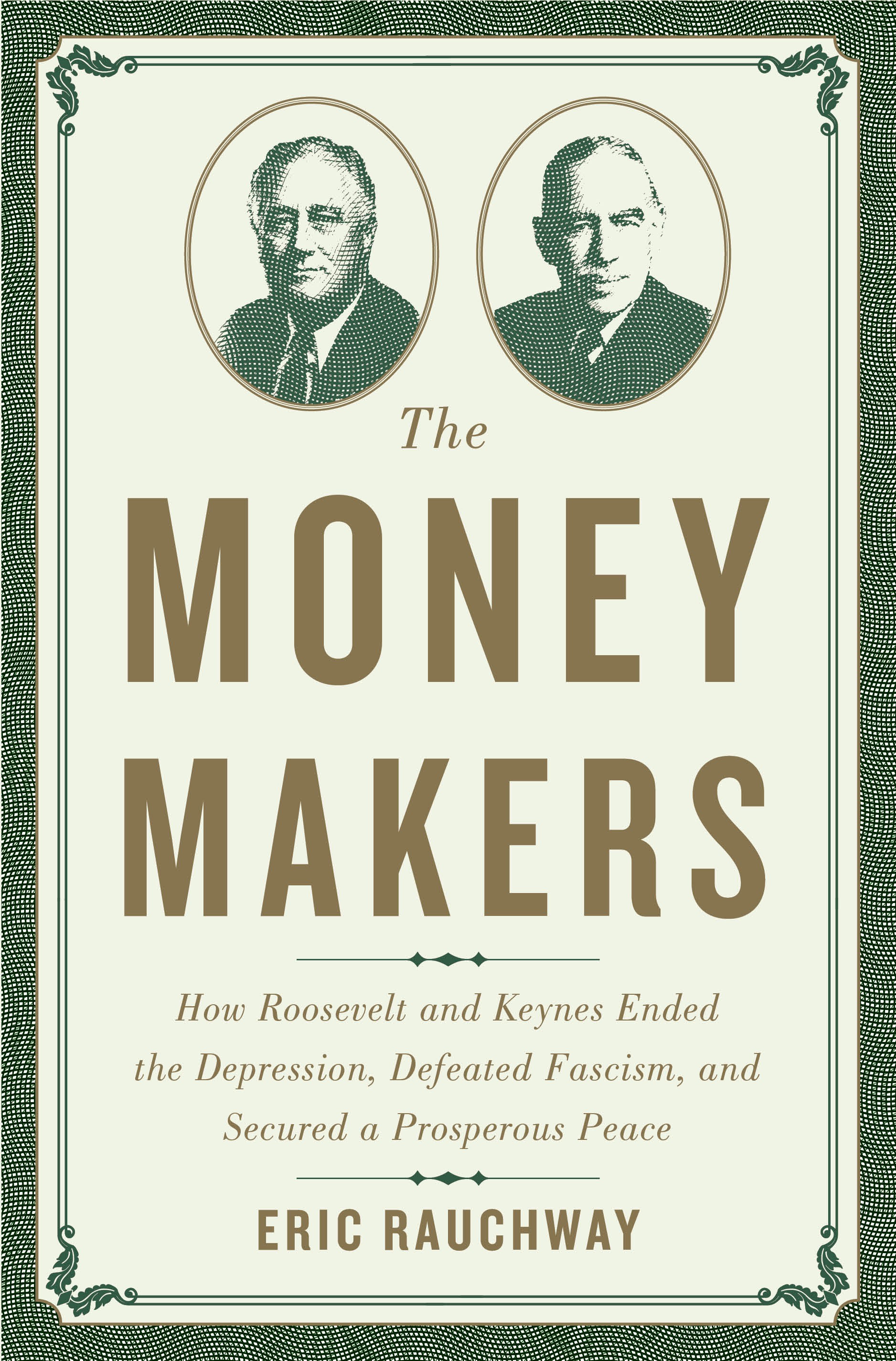In the old Blind School on Hardman Street, Liverpool, subsequently trade union offices and the home of the Picket (a music venue), there’s a cupola with a mural celebrating the workers’ movement. Sadly, the damp is getting to it. The mural was painted by artist Mick Jones, son of Jack Jones the trade union leader. Arthur Scargill leads Karl Marx and there is much other detail of interest. The owner of the nearby Hope Street Hotel owns the building now and has plans for to turn it into a gastropub, so let’s hope it gets restored rather than destroyed. (There are move shots of the mural in the adjacent sections of my Flickr stream.)
From the monthly archives:
March 2015
Having made one recent post that topped 1000 comments, I thought I would try to be more abstruse for a time.
I have a trivia question for you. I’m reading Volney’s The Ruins. Why? Because it’s one of the books that Frankenstein’s monster overhears: [click to continue…]
I made this observation in comments on Chris’ ideal theory post, and got some pushback, so I thought I’d take a look back at the data
Both the number and the percentage of families in poverty dropped sharply during the 1960s when the “War on Poverty” was being waged actively, and remained near their all-time lows through the Nixon and Carter years until 1979, when the Volcker recession hit, followed by the election of Ronald Reagan. These events can reasonably be said to mark the point at which the government unequivocally changed sides.
The number of households in poverty has risen steadily since then and is now higher than in 1959, the year for which the poverty level was first defined by Mollie Orshansky. The poverty rate has remained consistently higher than in the 1970s, except for a brief deep at the peak of the late-1990s boom.
[click to continue…]
Well, almost. The British government has just produced [the guidance for its “Prevent” scheme for education](http://blog.sghmartineau.com/archive/2015/03/13/final-version-of-prevent-guidance-published.aspx), which aims to stop young people from being drawn into “extremism”. The elite at Oxford and Cambridge have been granted a specific exemption, allowing them to hear dangerous ideas that might corrupt the ordinary youth, and universities haven’t been given specific guidance on what they may teach. Colleges of further education, on the other hand, have been told that “All relevant curriculum areas will need to be engaged, with a single contact point for delivery of Prevent-related activity.” This so that students are not exposed to arguments that involve
> “active opposition to fundamental British values, including democracy, the rule of law, individual liberty and the mutual tolerance of different faiths and beliefs.”
I suppose it will be news to some that these are “British” values, particularly if they are Irish or live in the former colonies. But leaving that aside, it looks like Plato is off the menu and to make sure:
> “Compliance with the duty will be monitored centrally via the Home Office and through appropriate inspection regimes in each sector.”
Well, that’s freedom for you.
Fuck. Although we knew it was coming, and I am glad if he went out (as I am guessing) on his own terms. Guardian obituary here. I’m pretty sure that his books will continue to live, just as PG Wodehouse’s books have continued to live, although they were very different comic writers. Both were liberal in a small-l sense of the word, but Pratchett’s liberalism was very much more worldly. I’ll always have a particular fondness for the enlightened despot, Lord Vetinari and for the model of hydraulic Keynesianism in Making Money. And for the Ramtop Mountains, an antiquated technology joke that has long outlived its original meaning. And the constellation of the Small Boring Group of Faint Stars, which I bored my nine year old with the day before yesterday. And where Rincewind has seen his life flash before his eyes so many times that he can nap during the boring bits. And the gods’ celestial habitation – Dunmanifestin. And Wyrd Sisters, which is perfectly paced as a novel, with particular attention paid to the standing stone that refuses to be counted and the castle (if my memory is correct) designed by an architect who had heard of Gormenghast but didn’t have the budget. And I could keep on going, and going, and going, which is the point.
One of the most familiar and irritating moves in political philosophy is when a person says “oh, but my point was in ideal theory” as a response to some objection that references the grim and complicated real world. Not that I object in principle to ideal theory. But I do want to write this blog post to share a hypothesis about the ideal/non-ideal distinction and about why it has become more of a problem over time. The hypothesis is this: that in 1971 the gap between the ideal and the actual was a lot smaller than it is now. The world resembled Rawls’s ideal of the well-ordered society a lot more than it does now. Or at least, the North American bit of the world did.
Given that closer resemblance, people could do ideal theory without it looking like they were engaging in arcane hypotheses about a distant possible world. Political philosophy of the ideal variety looked a lot more relevant to what ought to happen.
[click to continue…]
 |
|
| Forthcoming in September, from Basic Books |
On this day in 1933, it was the first Friday of Franklin Roosevelt’s administration, and the new president met reporters to talk to them about ending the bank holiday with which he had begun his term. The Federal Reserve Banks would open on Saturday so that member banks of the Federal Reserve System could open on Monday. A reporter asked if the banks would be open “[a]ll along the line, Mr. President; that is, all functions?” Roosevelt replied, “Yes, all functions. Except, of course, as to gold. That is a different thing. I am keeping my finger on gold.”
The president’s week had started with his inauguration on March 4, the previous Saturday, when he had told the American people they had only fear itself to fear, and promised them an “adequate but sound currency.” The next day Roosevelt worked all through the day with members of his team and holdovers from Herbert Hoover’s to draft orders to close the banks and halt all payouts of gold. They worked so hard that Sunday that it was late by the time the order was ready for presidential signature – so late that Federal Reserve counsel Walter Wyatt urged the president to wait a little longer to sign, so that it would be Monday, and not so sacrilegious. Roosevelt did wait, and then, on signing the order said – gleefully, according to one account – “We are now off the gold standard.” That was in the wee hours of March 6; later that morning, Americans began a week of doing business without access to banks.
Aleksandr Dugin has come to public attention as “Putin’s Brain,” as Foreign Affairs memorably dubbed him – that is, as the ideological mastermind behind Russia’s moves towards reasserting imperial ambitions, notably with respect to Ukraine. Is this accurate, or is it just media hype? The truth is that it’s extremely difficult to judge with confidence exactly to what extent Vladimir Putin’s more aggressive policies towards, for instance, Ukraine reflect Dugin’s influence (or supposed influence) as an omnipresent publicist and behind-the-curtain advisor to aspiring czars. (The suspicion easily arises that Putin uses Dugin – lets him rant on state TV – without himself buying into the crazy worldview.) But whether Dugin really is influencing Russian policy or is simply the object of excessive hype, either way intellectuals as well as ordinary citizens in the West need to be aware of him, lest they be taken in by his pretensions as a theorist and his claimed interest in civilizational dialogue and pluralism, which functions as a rhetorical cloak. Either way, he’s dangerous.
[click to continue…]
The UK’s Foreign Secretary, Philip Hammond, made a speech this morning at RUSI, the main military-focused think tank in the UK. That’s the same Foreign Secretary who when at the Ministry of Defense decided to can one fifth of the army, speaking at the same think tank that put out a report yesterday saying Hammond’s government will cut about 43,000 more soldiers – from an army of less than 100,000 – if it’s re-elected. That’s the Foreign Secretary presiding over an FCO whose Russia experts have been let go and scattered to the four winds of oil companies, think tanks and academia, because God knows the UK doesn’t need that kind of expertise. That’s the same Foreign Secretary who can barely spell Brussels, let alone bear to go there, and who is quite satisfied leading the foreign service of a country that increasingly distrusts and fears all things foreign. That one.
Hammond’s speech is easy to summarise: Russia is very mean and bad; ok fair enough, we didn’t foresee ISIS; but if only people would stop all this pointless bleating about the security services’ oversight and transparency, we could get on with our job of protecting the people of Britain. How strong. How plausible. How brave.
It’s only at the level of detail, or rather its self-serving and specious claims, that Hammond’s speech breaks down.
What Hammond says: ‘We said we would legislate to ensure that cases involving national security information could be heard fairly, fully and safely in our courts. And we did.’
What the government did: further entrenched secret courts and a parallel justice system where evidence against individuals cannot be seen by them or their lawyers, destroying the principle and practice of fair trial.
What Hammond says: ‘We said we would strengthen independent and parliamentary scrutiny of the agencies. And we have by making the Intelligence and Security Committee a statutory committee of Parliament.’
What the government did: Make Parliament’s Intelligence and Security Committee a statutory committee. Whoopee. Anyone who thinks the ISC provides effective oversight should watch some video of its fawning audiences security service leaders or examine the politicised timeline and gutless redactions of its report on the murder of the soldier Lee Rigby. Failing that, examine the record of career securocrat Malcolm Rifkind, its Chair who just resigned for peddling access to the Chinese. [click to continue…]
I haven’t been posting, so I figure I should show my work – that is, establish that I’ve been toiling on some sort of important intellectual project behind the scenes.
So here’s the thing. I always figured Jack Kirby just made up ‘weirdies’ – like he invented most things that matter to us today: [click to continue…]
The year after I graduated college, I lived out in the East Bay area. I was interning at a magazine, for free, and temping (among various other jobs) to support myself.
At one of my temping gigs I befriended a woman from Carbondale, Pennsylvania. Her name was Gloria. She had long black hair, wore lots of leather and makeup, and listened to hard rock and heavy metal. I think she had a son, though I can’t remember for sure. A working-class Italian-American from back East, we didn’t have much in common except a shared love for complaining about our job and trash-talking our boss. Even so, she wound up telling me a lot about her personal life (I have vague memories of  a problematic boyfriend on the scene). She also lent me a cookbook of Italian recipes that I never returned to her.
One day, Gloria furtively pulled out a folder of clippings and told me they were about her Aunt Viola. Viola had been a mother of five in Michigan who went south in the 1960s to march for voting rights for black Americans. Gloria told me she was shot and killed. Gloria was clearly proud of her aunt, but she also said that not everyone in her family felt the same way. I had never heard of her aunt or this story.
 I forgot about both, until years later, when I learned the story of Viola Liuzzo. I put two and two together and realized that Gloria was Viola’s niece. For many years, Liuzzo was one of the forgotten heroes of the Civil Rights Movement. But apparently she now has received her due in the film Selma, which I haven’t seen yet.
I forgot about both, until years later, when I learned the story of Viola Liuzzo. I put two and two together and realized that Gloria was Viola’s niece. For many years, Liuzzo was one of the forgotten heroes of the Civil Rights Movement. But apparently she now has received her due in the film Selma, which I haven’t seen yet.
Mary Stanton wrote a lovely piece on Liuzzo back in 1999, which was revived and posted this month, but before I provide some excerpts here, I want to come back to Gloria. As far I could tell, Gloria was not a political person. She was mostly a survivor—of bad jobs, bad relationships, bad luck. Even so, she had strong feelings about racism and racial equality, rooted in a sense of obligation to her murdered aunt. Just a small reminder of how many lives a radical movement of social change like the Civil Rights Movement can touch.
Readers might know Michel Maffesoli, the French sociologist famous for having been the PhD advisor of a socialite seer, Elizabeth Teissier (who did produce an astrological Ph.D). Maffesoli is the herald of a brand of postmodern, non-empirical sociology mixed with esoteric and masonic references. He was a student of Gilbert Durand (who himself was a promoter of academic astrology) and of far-right political scientist Julien Freund. But he was also full professor in one of the most important sociology department in France (at the Université Paris 5). And after the Teissier affair, he has been selected by several ministers of Higher Education to be a member of the Administrative Council of the CNRS, and to be a member of the prestigious *Institut Universitaire de France*. His colleagues and peers at the IUF awarded him the highest professorial rank (“Classe exceptionnelle”). He is the PhD advisor of more than 130 students (seriously, you can check the number on www.theses.fr). He is the Editor of two journals, *Sociétés* (published by De Boeck, a respectable academic press) and *Les cahiers européens de l’imaginaires* (published by the CNRS).
It has always been difficult to understand the coexistence of the deep contempt of mainstream French sociologists for Maffesoli (he is widely denigrated as a fraud) and of his academic and more wordly successes. One could point to his friendly acquaintance with post-gaullist politicians and to his masonic affiliations, as well as other forms of network connection, but that would not be a full explanation. Recently, Manuel Quinon and Arnaud Saint-Martin, two French sociologists, decided to “Sokal” the Maffesolian band of sociology. Adopting a pseudonym, they wrote an article in postmodern language submitted it to *Sociétés*. They wrote some gobbledegook and *Sociétés* very rapidly decided to publish it as “Automobilités postmodernes: quand l’Autolib’ fait sensation à Paris.”

The article is about the Autolib, an electric car rental service available on a subscription basis in Paris.
In the article, the “transgender” Autolib is described as the turning point for the modern *episteme*, as the return to the protection of the primordial matrix, and so on. Being well-versed in maffesolese, they know that “modern” is bad, faustian, promethean, and that “postmodern” is good, comforting and dyonisian. In less than 10 pages, they use half a dozen languages: French, English, German, Latin, Greek (in Greek and Latin alphabets), and various typographic affectations (italics, parentheses, slashes in the middle of words). The vocabulary is often complex—”glyschomorphous”, “phallogocentric”, “diairetico-schizomorphous”—but lacking any particular definition. At the center of the article lies a pun. “Essence”, in French, is both essence (as in essential), and gasoline (as in oil). Thus our fictional author writes that the Autolib is “an open car, but not in essence because it is an electric car”. They also insist that postmodernity is “gaseous”, because Zygmunt Bauman’s modernity is “liquid”. The Autolib reveals itself in conclusion as the origin of a “new directing myth for a new epoch (postmodernity)”.
One month after the publication of their article Saint-Martin and Quinon disclosed their hoax in a long article Le maffesolisme, une sociologie en roue libre : Maffesolism, a freewheeling sociology, where they describe the planning of their article, the swift “evaluation” process and their goal (the ultimate academic destruction of Maffesoland). But their article is also a comprehensive and thorough analysis of Maffesoli’s texts and metaphysics. It is on the basis of this analysis that they have written their pastiche, which is, in some respects, better than what Maffesoli and his students write themselves.
We interrupt our regularly scheduled program for a bit of shilling. Today I start a new gig as a columnist at Salon. It’ll be bimonthly (or is it biweekly? I can never get those two words straight.) I’m excited, if a bit nervous, about this venture. But if it goes south, I’m going to blame Henry; when I asked him if I should do it, he gave me his blessing (albeit with reservations.) Anyway, here’s my debut column: on racism, privilege talk, and schools.
Facebook can be a weird place on Martin Luther King Day. Some of my friends post famous passages from MLK’s speeches. Others post statistics on racial inequality. Still others, mostly white parents, post photographs of their children assembled in auditoriums and schoolyards. These are always hopeful images, the next generation stirring toward interracial harmony. Except for one thing: nearly everyone in the photos is … white.
In her public school this year, my first-grade daughter learned that Daisy Bates helped integrate the Little Rock schools. She knows that Ella Baker, someone I’d never heard of till I went to college, was part of the civil rights movement. Meanwhile, her school has a combined black and Latino population of 15Â percent, down from nearly 30 percent just seven years ago.
In school, white children are taught to be conscious of race and racism in a way I never was when I was as a kid in the 1970s. Yet they go to schools that are in some respects more segregated now than they were in the 1970s….
Microsoft Word recognizes the word “desegregate.” It doesn’t recognize “resegregate.”
The way we live now is not reflected in the way we talk. Or type.
And if you have suggestions for topics I should write about in my column—stories not being reported, books not being reviewed, ideas not being discussed—please don’t hesitate to email me at corey.robin@gmail.com. I’ll be looking for material.
18th-century wax model for medical training. An essential place to visit in Florence.
That’s one good thing about music–when it hits, you feel no pain. I recently had an out-of-the-blue need to hear this Cure song, partly thinking that Zoë would like it, which she does, a lot. It’s a very happy feeling to introduce someone to music that they love. I remember the first time I listened to this song vividly, because I had two friends sleeping over, one of whom had brought the tape. My step-father had an (admittedly solid) “free cheap red wine for sleepovers” policy. I was thinking it started in middle school, but on reflection I realize it must have been ninth grade. In middle school it was sort of unofficial. This encouraged a make-out during sleepovers policy also unofficially endorsed by my stepfather but WHATever, awesome parenting skillz. My step-dad had his bad side but he really knew how to throw a fun party. Let it never be said he was not fun at a party. I mean, stuff went wrong eventually, sometimes, with either drywall, glass tables, or his hand getting broken (or all three!), or firearms being discharged indoors, or my mom magnificently sweeping down the stairs in a silk 1930s gown and putting a stop to all further shenanigans by hacking a big piece out of the entryway to the living room with a machete. That last was really memorable and for whatever reason put a stop to what had been a many-year run of weekly two and three-day parties.
